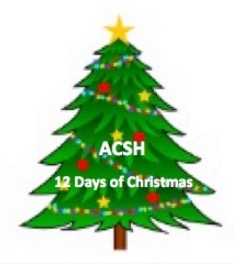
Sometimes, things just don't make sense. Recommendations on what causes cancer should not be one of them. However, most major news outlets ran headlines this past June claiming that "hot drinks probably cause cancer" based on a letter that the International Agency for Research on Cancer (IARC) published in the Lancet.
But, when you take a minute, (before we all start drinking our coffee lukewarm) and take a look into the letter, it becomes apparent that there is no science that supports this statement.
The majority of the letter is concerned with whether coffee causes cancer or not (it doesn't.) The last time that coffee was reviewed by IARC was in 1991, when it was classified as “possibly carcinogenic to humans“ (Group 2B.) (1) However, even IARC admits that that classification was based on "limited evidence of an association with cancer of the urinary bladder from case-control studies, and inadequate evidence of carcinogenicity in experimental animals." Now, 15 years later, coffee has been reclassified to Group 3 - "not classifiable as to its carcinogenicity to humans." If you speak IARC-ian, that means that, although they are not willing to come right out and say it, they are not at all worried about it causing cancer.
As reasonable as a decision as that is, the group's flip-flopping calls into question the impact of these statements. As Hank Campbell wrote earlier this year, "That is bad for people who want to trust IARC's recommendations -- because its reasons to reverse course on coffee are no more valid than its reason to have declared it possibly carcinogenic to humans (Group 2B) in the first place."
Just when IARC seemed to be doing a good job on the coffee classification, the end of letter brings us another example of IARC's folly. IARC presents correlations between esophageal cancer in South America and drinking hot drinks - specifically, mate (shown below), which is a popular drink in South America traditionally served hot.
At first, I thought, maybe mate itself causes cancer? But, the paper explicitly says that "Drinking mate that is not very hot was evaluated as "not classifiable as to its carcinogenicity to humans."
If it's not the drink - it must be the temperature.
Indeed, the letter makes claims that it is the temperature and state that animal studies show that hot water can act as a "tumour promoter'. Hot. water.
They quickly follow that with this sentence, and please read this carefully, "Although the mechanistic and other relevant evidence for very hot beverages is scant, biological plausibility exists for an association between very hot beverages and cell injury and the sequelae that might lead to cancer."
They are stating that, although there is no evidence, there is biological plausibility that hot drinks could cause cancer.
Well, last time I checked, something being "biologically plausible" does not make it true. It is nothing more than a well thought out hypothesis - a proposal of a cause and effect. It's also biologically plausible that if I exercise more, I'll look like Gisele Bündchen.
So, until there is more evidence, enjoy your hot drinks.
Wait a minute - you're not using a plastic fork, are you?
(1) IARC categories
|
Group 1 |
Carcinogenic to humans |
119 agents |
|
Group 2A |
Probably carcinogenic to humans |
81 |
|
Group 2B |
Possibly carcinogenic to humans |
292 |
|
Group 3 |
Not classifiable as to its carcinogenicity to humans |
505 |
|
Group 4 |
Probably not carcinogenic to humans |
1 |
http://monographs.iarc.fr/ENG/Classification/
(2) For more on this topic, please read the article that I co-wrote with Alex Berezow in USA Today.

The 12 Days of ACSH Christmas



